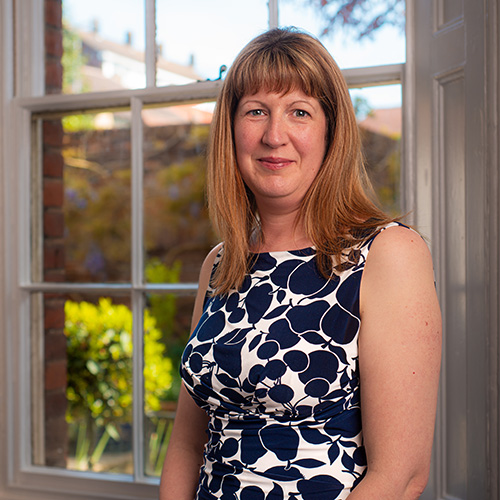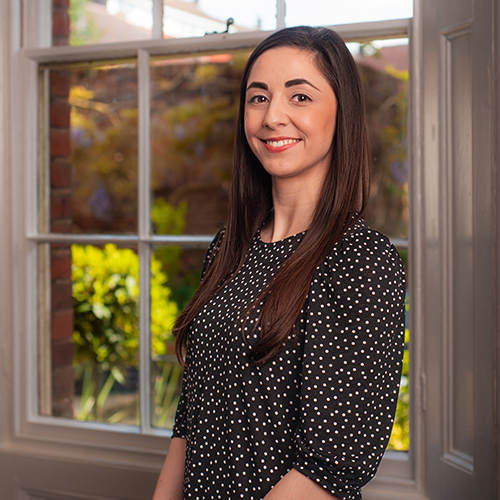Home / For You / Private Client / Trusts & Estate planning
What is a Trust?
Trusts are versatile tools for protecting family wealth after your death. They can define shares in property, support individuals in financial need, or manage assets for charitable purposes. Trusts can be established during your lifetime through a Deed or via your Will, which takes effect upon your death.
Various types of trusts include:
Discretionary Trusts:
Assets are placed in trust for multiple beneficiaries, with the Trustee having discretion over distributions. Not all beneficiaries are guaranteed benefits, and clients can provide guidance to Trustees through a letter of wishes. Discretionary Trusts help keep assets outside of the client's estate, benefiting from their own Inheritance Tax Nil threshold and tax considerations.
Life Interest Trusts:
These trusts can safeguard part of your home from residential care fees. Commonly used in Wills, they allow a surviving spouse from a second marriage to receive income from a property while preserving the asset for eventual beneficiaries, such as children from a previous marriage.
Declarations of Trust:
Used to define interests in land or property, particularly in cases where one party has contributed more to the purchase. This document outlines how sale proceeds should be divided when the property is eventually sold.
What is Estate Planning?
Estate planning is a crucial focus of our practice. It's easy to underestimate asset values and the impact of tax liabilities on your financial security. Our team will collaborate with you to proactively plan, aiming to reduce tax burdens, safeguard vital family and business assets, and ensure seamless wealth transfer across generations according to your preferences.
We serve private individuals worldwide, including those residing outside the UK. Our services encompass:
- Various types of trusts like relevant property, fixed interest, or flexible trusts
- Addressing associated tax considerations
- Inheritance tax and retirement planning
- Management of offshore trusts
- Assessing residence and domicile status
- Guidance on lifetime gifting
Trusts & Estate planning Services
Meet Our Private Client Team

Katie Carter
Partner
Tel: +44 (0) 1306 502297
Email: Katie Carter

Mehboob Dharamsi
Partner
Tel: +44 (0) 1932 588579
Email: Mehboob Dharamsi

Jenna Hopkins
Partner
Tel: +44 (0) 1483 411525
Email: Jenna Hopkins

Amber O’Connor
Partner
Tel: +44 (0) 1306 502290
Email: Amber O’Connor

Victoria Evans
Senior Associate
Tel: +44 (0) 1483 411512
Email: Victoria Evans

Elizabeth Muston
Senior Associate
Tel: +44 (0)1306 502203
Email: Elizabeth Muston

Joanna Pashley
Senior Associate
Tel: +44 (0)1306 502959
Email: Joanna Pashley

Diane Sumpter
Senior Associate
Tel: +44 (0)1306 502235
Email: Diane Sumpter

Kirsty Farquhar
Solicitor
Tel: +44 (0) 1483 861848
Email: Kirsty Farquhar

Meg Constable
Legal Executive
Tel: +44 (0) 1483 411529
Email: Meg Constable

Tim Hughes
Consultant Solicitor
Tel: +44 (0) 1306 502212
Email: Tim Hughes

Sarah Noake
Consultant Solicitor
Tel: +44 (0) 1932 588568
Email: Sarah Noake

Liz Dalgetty
Consultant Solicitor & Notary Public
Tel: +44 (0) 1306 502251
Email: Liz Dalgetty

Megan Lawless
Associate Solicitor
Tel: +44 (0)1306 502326
Email: Megan Lawless

Lucy Whittam
Associate Solicitor
Tel: +44 (0) 1306 502962
Email: Lucy Whittam
FAQ
Divorce FAQ+
How will our assets to be split?+
Generally, the starting point for splitting assets is 50/50. However, each case will be different and the split will depend on factors such as if you were married or in a civil partnership, how long you were together, how complicated your financials are, and whether both parties agree to a financial settlement. In cases where both parties agree to a financial settlement, the assets can be split according to the agreement, 80/20, 70/30 or another split. However, if it is not possible to come to an agreement, we can act as mediators and try to help negotiate to reach an amicable financial agreement. If this mediation is not successful or your finances very complicated, then a financial settlement can be reached through Court.
How much am I entitled to?+
In the UK, generally assets are split 50/50. However, this is supposed to be an amicable or fair split and if your finances are very complicated or you run a business or you brought many assets into the marriage or civil partnership, a 50/50 split may not apply, as it may be considered unfair. The final split will depend on what is considered fair and what can be negotiated and agreed upon. This could be 80/20 or 70/30 or another split. Whatever split you agree on, you will have to apply for a consent order to make it legal and the team at Downs can help with this process.
How will maintenance be calculated?+
There are two types of maintenance, spousal and child maintenance. For child maintenance, there is a statutory amount that will need to be calculated and paid set forth under the Child Maintenance Act for the person who will be responsible for the child. However, for spousal maintenance, there is not such fixed calculation. The spousal maintenance will be calculate based on need and lifestyle and what the two parties can agree on. If no agreement can be reached, then the Court will decide the amount to be paid and how long it will need to be paid
Is it true the wife always gets the house?+
The simple answer is, no. There are many variables that determine who will get the home you have lived in together. Part of the decision will depend on who owns the home. The outcome will differ if the home is registered in your name only or jointly with your partner or is owned together with someone else. It will also depend on whether you have children or if it is easier to sell the home and share the proceeds.
However, if your partner owns the home and you are worried that they will sell it prior to the divorce and keep the proceeds, then our team can help you register your home rights, which can stop your partner from selling the home.
What happens with pensions on divorce?+
Simply put, pensions are considered part of the joint finances and will be split, starting at 50/50, when you divorce or dissolve a civil partnership. The final split will be determined by the financial settlement you agree on either amicably negotiated between you and partner, mediated by us or through a court order. However, there are ways to negotiate pension splits and this may depend on your age and circumstances. Our family law team can advise you on what will best suit your situation.
Are assets overseas taken into account?+
Legally, all assets, regardless of if they are in the UK or overseas are considered joint assets or matrimonial property. However, a distinction will be made whether you brought those assets to the marriage or civil partnership. If the overseas assets were obtained prior to the marriage or civil partnership, they are unlikely to be considered as part of the matrimonial property. However, in some cases it may be difficult to enforce UK court orders in a foreign country, if your partner is not amicable, and this may lead to problems when trying to access or sell those overseas assets. At Downs we can advise you on how best to deal with overseas assets.
Family FAQ+
Can I get divorced?+
You can get divorced if all of the following apply to you:
- you have been married or in a civil partnership for more than one year.
- your relationship with your partner has irretrievably broken down based one or more of the following grounds: adultery, unreasonable behaviour, desertion, two-year separation with consent, or five-year separation.
- your marriage is legally recognised in the UK.
- your permanent home is in the UK.
Please come and discuss your situation with the family law team and we can advise you of your legal situation. In some cases, it may also be possible to annul your marriage.
How do you get a divorce?+
After you have confirmed that you are able to get a divorce, then you must apply for a divorce. This involves filing a divorce application or divorce petition and we can help you fill this out and gather the appropriate documents that will need to be submitted for the application. For one, you will need to have your original marriage certificate or a certified copy, and if it is not in English have a certified translation made. We can explain the various steps and walk you through the whole process.
Do I have to divorce, can we just separate?+
Yes, you can just separate. However, there are different legal implications when it comes to a separation and a divorce. Generally, a divorce will carry bigger legal weight than a separation and you may be entitled to more assets under a divorce than a separation. Our family law team can advise you on what exactly the legal differences are and what option will best suit your circumstances.
Will I have to go to Court?+
The short answer is no, you do not have to Court. However, this will depend very much on whether you and your partner can negotiate and come to amicable agreements. Our family law teams are happy to mediate and help with negotiations. However, if you are unable to come to an agreement with your partner, then the only solution is to go to Court.
What about arrangements for children on separation?+
If you have a child or children, you and your partner should try to come to an agreement on child arrangements. Sometimes this can be difficult and the family law team at Downs can help mediate discussions, especially when it comes to issues like who will support the child(ren) financially, where will the child(ren) live, and how much time the child(ren) will spend with each parent. Some of these arrangements should be made legally binding and we can help prepare the paperwork for that. If it is not possible to come to an agreement through mediation, experienced solicitors at Downs can represent you in Court.
How much does it cost?+
The cost of your divorce or dissolution of a civil partnership will depend heavily on how complicated it is and how long it takes. A very straightforward case, where both parties amicably negotiate a financial settlement and the splitting of assets and child arrangements, if required, will cost much less than if no amicable financial settlement can be reached and your case has to go to Court. But don’t let cost be a hindrance, come and talk to us at Downs and we can give you an estimate of how much your case may cost. Additionally, depending on your circumstances, we do offer a fixed fee divorce package.
Can I get Legal Aid?+
Depending on your financial situation, you can get Legal Aid. If your income is low and your financial means are limited, you may be entitled to waive some of your court or tribunal fees. There are numerous eligibility criteria, based on your income, savings and benefits. However, as a general rule, if you earn £1,170 or less a month before tax, then you are eligible. Also, you can receive Legal Aid, if you are separating from an abusive partner.










